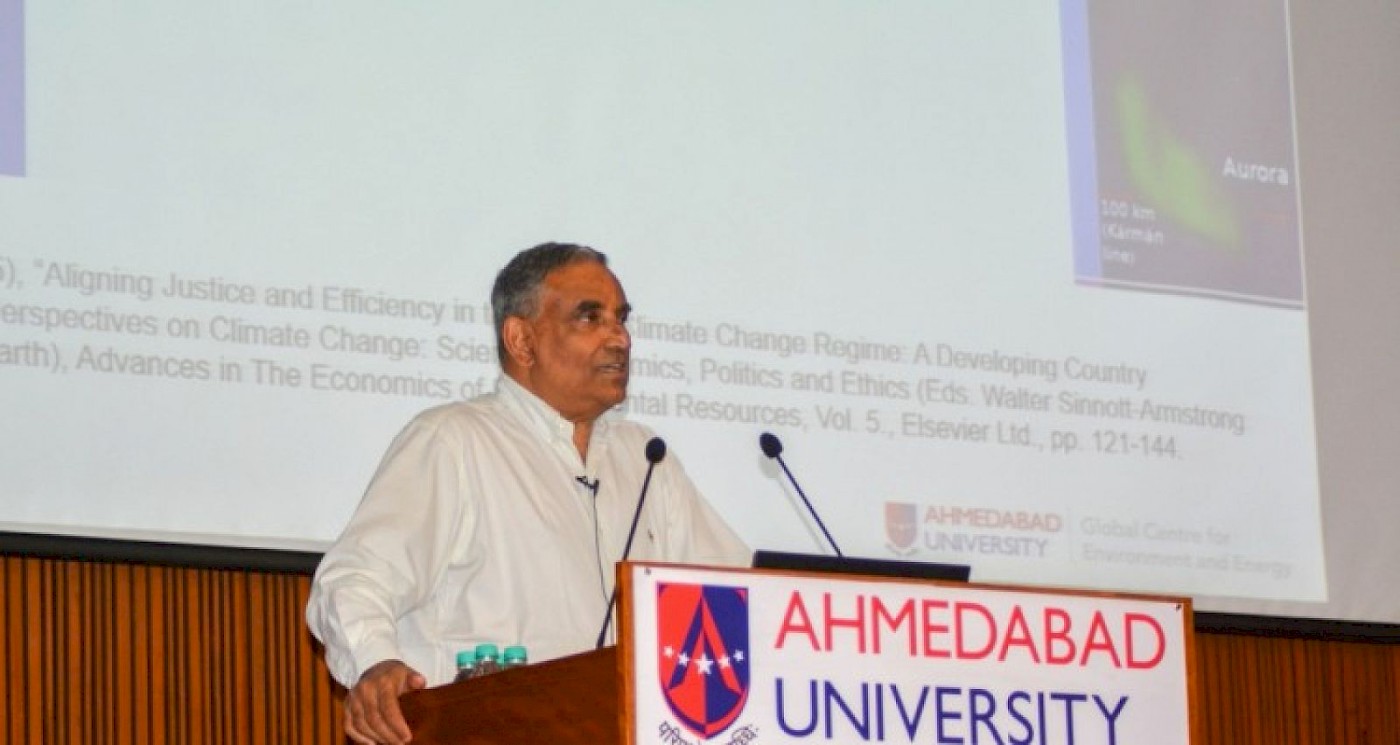Sharing Atmosphere Sustainably

Greenhouse Gases (GHGs) emitted from human activities are occupying atmosphere. They are changing the climate and are adversely impacting natural and human systems. GHGs are ‘negative’ global public goods. The United Nations Framework Convention on Climate Change (UNFCCC) is a multilateral treaty aimed to prevent dangerous human interference with the climate system. The global climate change negotiations have evolved around two questions: i) how to minimize global costs of mitigating climate change and its impacts? and, ii) what is a nation’s fair share of emissions, i.e. it’s right to share the atmosphere? The first concerns the economic efficiency and second the distributive justice. The universal participation is a necessary condition for an economically efficient climate regime. The seminar discussed means and methods to narrow the gap between ambition and performance in managing climate change specifically and the environmental public goods in general.



